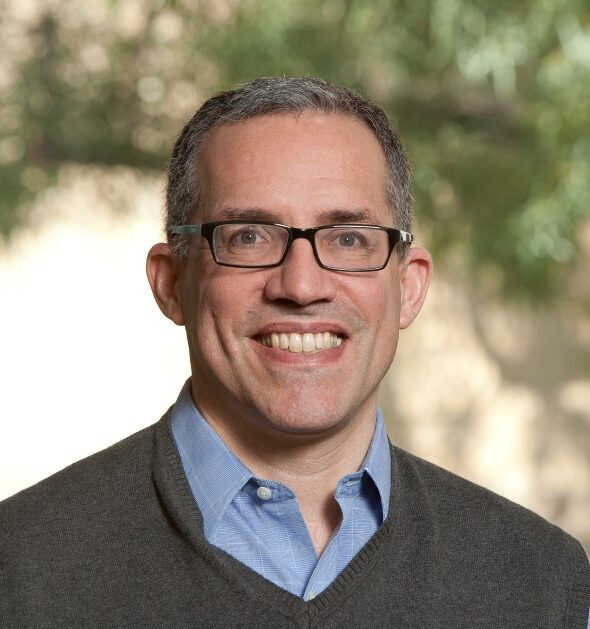- English
- DEUTSCH
- SPANISH
- FRENCH



Following a recruitment process led by Perrett Laver, Dan was appointed as The Wildlife Conservation Society’s (WCS) first Executive Director of Forests and Climate Change.
We sat down with Dan to discuss his career so far, his new role with WCS and the impact of the COVID-19 pandemic on the fight against climate change.



Fundamentally, climate science has greatly improved. Having said that, even 30 years ago it was clear that human behaviour was driving detrimental climate change. Tackling climate change 30 years ago would have been a less daunting challenge but, globally, leaders in government and the private sector mostly chose to ignore the science.
At the time, their perception was that the current cost of action – for which they would be held responsible — outweighed the future cost of inaction, which would be someone else’s problem. Fast forward to today, and the size and cost of the problem have grown — and it now belongs to all of us.
Climate change is no longer an academic discussion but rather a lived reality; all over the world, people are directly affected by climate related disasters such as fires, flooding and heatwaves which simply cannot be ignored.
Undoubtedly, these events are concentrating attention from both the private sector and government. Ignoring the growing crisis is no longer an option. Unfortunately, the challenges only continue to grow more urgent.


I have to be optimistic. We can still achieve a lot of mitigation and a lot of adaptation — enough to make a positive difference for most people and most of the natural world — but we need to act now, in this decade, to make important structural changes. Climate disasters have made people sit up and seriously listen to warnings from experts on the subject. Remember, it took a global pandemic to get the world to listen to public health experts.
The US election result has also made me much more optimistic about the direction of climate policy, both in the US and globally. That’s one good example of how everyone can make choices that directly impact the fight against climate change.
Our global financial system treats these assets as if they were free and infinite. Global climate change has taught us that they’re not, so we need to adapt. If nothing else, the Covid-19 pandemic has made it clear that people can and must adapt to survive and thrive, and that government, the private sector and civil society can work together to bring solutions forward.
That’s a very big question with more than one answer. People often expect a single silver bullet solution but unfortunately that does not exist. This is a complex problem. Recently, we have seen extraordinary success in the development of Covid vaccines through combined government and private sector action.
We need to apply similar approaches to tackling climate change. A lot of the progress we’ve seen in the renewable energy sector has been driven by public sector support for private sector innovation. We need more of that in other climate arenas, with a strong focus on incentivizing public benefits.
As WCS’s first Executive Director of Forests and Climate Change I am of course focused on the potential of forests to contribute to climate change mitigation, adaptation, and resilience.
The importance of forests for climate regulation is massively underappreciated. Globally, forests are each year absorbing between a quarter and a third of the greenhouse gas emissions that people put into the atmosphere
We should be investing in growing and protecting this “carbon sponge,” but instead private investment, sometimes publicly subsidized, is more often directed toward activities that eat away at the edges of the sponge, reducing its size and effectiveness through deforestation for low-productivity agriculture or land speculation.
As a result, the economic importance, investment opportunities, and job growth potential inherent in forest protection remain mostly unrealized. There’s a large and varied portfolio of critical investments – in recognizing the rights of indigenous and other traditional peoples who protect and sustainably manage extensive forest areas, in economic development based on biodiversity, and in critical “ecosystem services.”
Beyond the “carbon sponge” those services include other important climate regulation functions like buffering temperature extremes and, perhaps most importantly, supplying water for agricultural and urban consumption.
WCS has done a lot of great work that I’m hoping to build on with my new colleagues. Their long term, on-the-ground conservation programs are a remarkable asset in their own right, and also offer opportunities to leverage global impact. WCS and others in the Forests for Life Partnership have prioritised the protection of intact forest landscapes, and we need to make that priority a reality.
That will require connecting information, opportunities, and insights across local, national, regional and global venues to design effective new modalities that work for people on the ground and add up to large-scale impact.

Now is undeniably the time for action. Leaders need to drive action on climate change and stress that cost of inaction is too high to wait for perfect solutions. If we simply continue to prioritise conversations about shrinking the margins of uncertainty on the science or endless dialogues about big ideas unrooted in lived experience, we will lose the opportunities we still actually have to make real changes that will make real differences for people and our planet.
Perrett Laver specialises in executive search to identify outstanding leaders globally. We connect influential organisations with dynamic leaders who share common values and visions for the future.
Our deep understanding of each client’s values and culture ensures we find candidates from diverse sources who bring fresh perspectives and real impact.
We connect influential organisations with dynamic leaders who share common values and visions for the future.Our deep understanding of each client’s values and culture ensures we find candidates from diverse sources who bring fresh perspectives and real impact.